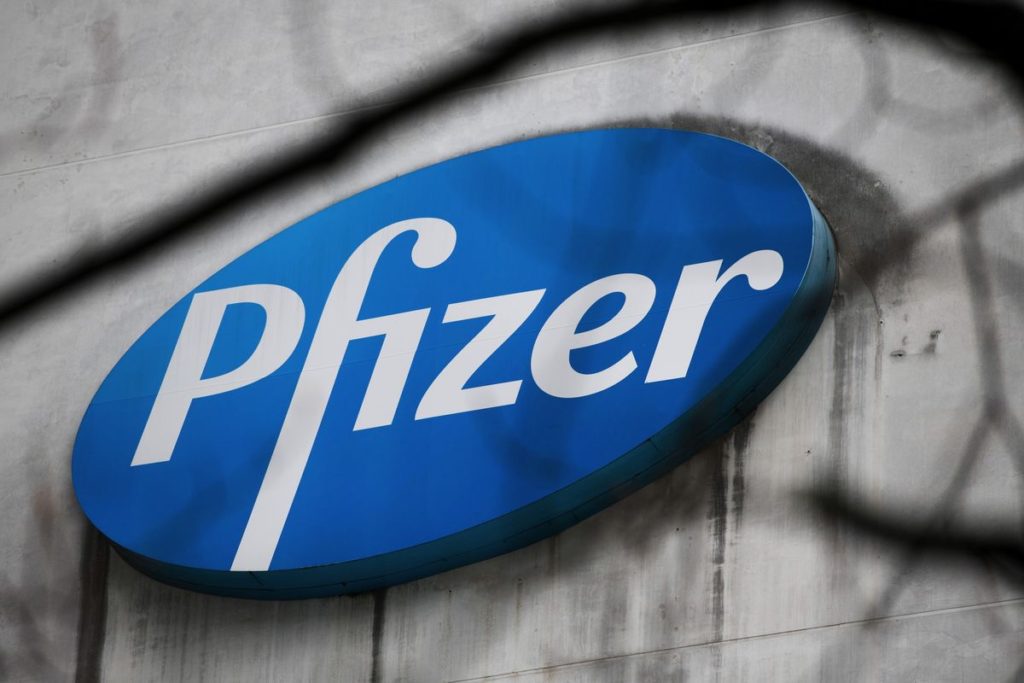Pfizer has announced a $5.4 billion payment to Global Blood Therapeutics (GBT), maker of Oxbryta (Voxelorator), one of the few drugs used to treat sickle cell disease.
Under terms of the deal, Pfizer will pay $68.50 in cash per Global Blood share, a premium of 7% over Friday’s closing price for the California company’s stock but double what they were worth last Wednesday. Shares have risen sharply in value since then, after Bloomberg reported multiple large pharmaceutical companies were interested in acquiring Global Blood.
Pfizer and Global Blood expect the deal, which has been approved by the boards of directors at both companies, to close as early as the fourth quarter, pending the sign of regulators and Global Blood shareholders.
Global Blood cells Oxbryta, which in 2019 won Food and Drug Administration approval for sickle cell. The OK came less than two weeks after the agency cleared another drug from Novartis for the disease, which results in abnormal “sickled” red blood cells that lead to chronic anemia, acute pain episodes and, over time, organ damage.
A sign for Pfizer is seen outside the Pfizer headquarters on November 9, 2020, in New York City.
A sign for Pfizer is seen outside the Pfizer headquarters on November 9, 2020, in New York City. David Dee Delgado via Getty Images.
Pfizer on Monday said it has agreed to acquire Global Blood Therapeutics for $5.4 billion in a deal that will hand it a recently approved drug for sickle cell disease, as well as two other experimental medicines for the rare blood condition.
Under terms of the deal, Pfizer will pay $68.50 in cash per Global Blood share, a premium of 7% over Friday’s closing price for the California company’s stock but double what they were worth last Wednesday. Shares have risen sharply in value since then, after Bloomberg reported multiple large pharmaceutical companies were interested in acquiring Global Blood. They jumped further Friday when The Wall Street Journal named Pfizer as a suitor, reporting the companies were in advanced talks.
Pfizer and Global Blood expect the deal, which has been approved by the boards of directors at both companies, to close as early as the fourth quarter, pending the sign of regulators and Global Blood shareholders.
Global Blood sells Oxbryta, which in 2019 won Food and Drug Administration approval for sickle cell. The OK came less than two weeks after the agency cleared another drug from Novartis for the disease, which results in abnormal “sickled” red blood cells that lead to chronic anemia, acute pain episodes and, over time, organ damage.
Prior to these two drugs and a third, Endari, that was approved in 2017, the primary treatment was hydroxyurea, a decades-old cancer drug that had been repurposed for use in sickle cell patients. Bone marrow transplants can be curative in children, but the procedure has serious side effects and isn’t available for people without a suitable donor.
Biotechnology companies like Global Blood have sought to develop new options and several, such as Bluebird bio and CRISPR Therapeutics, are working on treatments that replace or edit genes. In 2011, Pfizer entered a licensing deal with GlycoMimetics for a potential sickle cell treatment that ultimately failed in a Phase 3 study three years ago.
In addition to Oxbryta, Global Blood is developing two other medicines that are in mid- to late-stage testing for sickle cell, including one in Phase 3 trials that are designed to reduce the pain crises associated with the disease.
Together, Pfizer predicts peak sales of the drugs could reach past $3 billion globally. Sales of Oxbryta were $195 million in 2021.
While tens of thousands of people in the U.S. are estimated to have sickle cell, many more have the disease worldwide, particularly in areas of the world where malaria is more common.
In its statement, Pfizer said it plans to “accelerate distribution” of Global Blood’s drugs in places that are most impacted by sickle cell.
The acquisition of Global Blood is the most recent in a string of biotech buyouts for Pfizer, which has this year spent $12 billion to acquire Biohaven Pharmaceuticals and ReViral. Last December it spent nearly $7 billion on Arena Pharmaceuticals.
All of these moves are designed to grow the research pipeline while expanding the portfolio and capitalizing on the unexpected revenue from the COVID-19 vaccine and pills. CEO of Pfizer, Albert Bourla, has set a goal for him to reach $25 billion in sales by 2030 through acquisitions and other business development deals.


